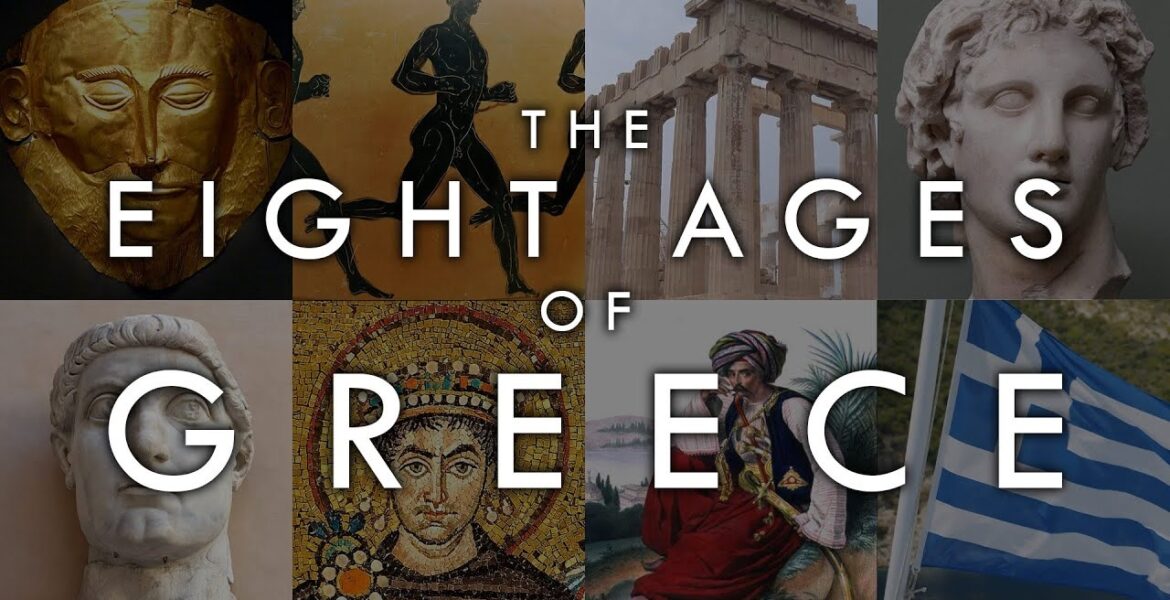The eight ages of Greece have been presented in a beautiful made documentary, available to watch for free on YouTube!
The oldest civilisation in Europe. Birthplace of Western Philosophy. The first European alphabet. A place where human sculpture was perfected. A place where democracy was first realised. Where those famous athletic games began. So many accolades for so small a land.
Where to begin in telling the story of this oh-so important of nations? At the beginning, of course, and don't stop until the end!
In this video, the YouTuber dared to tell the FULL history of this land and its people. It is an incredible story.
It is the story of GREECE.
See the video:
From the creator:
"In this full length history documentary of Greece I'll cover the full range of time, from the Bronze Age civilisations of Minoan Knossos and Mycenae, through the dark age that followed and into the Archaic Age that saw the Doric people rebirth an even more spectacular culture of a rich Greek mythology of heroes and gods, ornate pottery, the Oracle of Delphi, and an alphabet that is still in use today and was the father of Latin and Cyrillic alphabets used across the world.
"The cultural apex came during the Classical Age of the 6th and 5th Centuries BC, where Athens first experimented with democracy, and the Spartan phalanx held off the Persians at Thermopylae, where Socrates, Plato and Aristotle brought new thinking to the world, creating Western Philosophy, where architecture of temples and theatres reached sublime levels such as those of the Parthenon, and where sculpture of the human form was perfected.
"The squabbling polis or city states were eventually united under Phillip of Macedon, but it was his son, Alexander the Great who would go on to export the rich Greek culture to the rest of the Eastern Mediterranean and the Middle East beyond when he conquered the much greater Persian Empire in 336 BC. After Alexander, his conquests were split among his generals, with the greatest being Ptolemy and Egypt, which only ended three centuries later with Cleopatra.
"The Greek phalanx, however, ended up being no match for the Roman legions, and the Greek world was absorbed into the Roman world over several centuries, ending in Actium in 31BC. But "Greece conquered her rude conqueror" and the Romans adopted many of the customs and philosophy of their captors.
"As the Pax Romana ended in the 3rd and 4th Centuries AD, with the sack of Rome, only the Eastern Roman Empire, centred around Constantinople would survive, going on for another millennium as the Byzantine Empire.
"But betrayed by their fellow Christians in the Fourth Crusade in the Sack of Constantinople, the empire was so weakened that it was finally picked off by the Ottoman Turks two centuries later in the Ottoman conquest of 1453.
"The next four centuries were the darkest hour for Greece under Ottoman rule, but salvation would come with the help of the Western Powers with Greek independence in 1832.
"The modern Greek state expanded over the next 80 years to its current size today, albeit with the disastrous setback of the Greek-Turkish War of 1919-22.
"A brutal occupation by the Axis Powers in World War II ended only to be followed immediately by a civil war that left political scars between the left and right for decades afterwards, the low point being under the Regime of the Colonels from 1967-1974.
"Greece joined the EEC (EU) in 1982 and enjoyed benefits of membership but suffered badly in the 2008 financial crisis and the austerity measures that followed. Despite this, however, Greeks today still enjoy their best quality of life in centuries."
READ MORE: Bronze swords from Mycenaean civilisation found in Greek Tomb.


